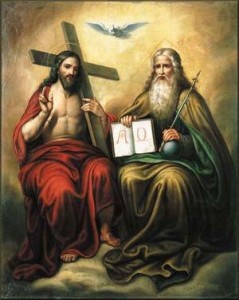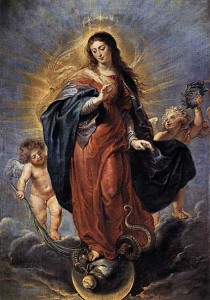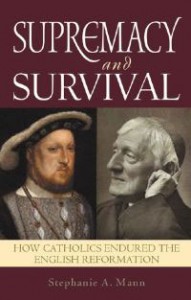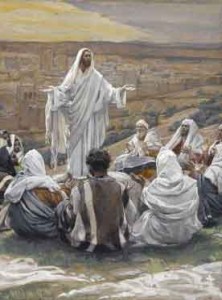Vatican City, 14 March 2012 (VIS)– During his general audience this morning the Holy Father began a new cycle of
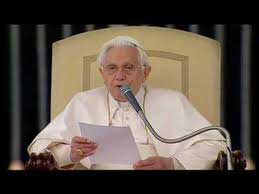
catecheses, dedicated to the subject of prayer in the Acts of the Apostles and the Letters of St. Paul. The Pope focused his remarks today on the figure of Mary as she appears in the Acts, when with the Apostles she awaits the coming of the Holy Spirit.Benedict XVI told the more than 10,000 pilgrims gathered in St. Peter’s Square that “it was with Mary that Jesus’ earthly life began, and it was with her that the Church took its first steps. … She discreetly followed her Son’s journey during His public life, even unto the foot of the cross. Then, with silent prayer, she continued to follow the progress of the Church”, he explained.The stages of Mary’s own journey from the house of Nazareth to the Upper Room of Jerusalem “were marked by her capacity to maintain an ongoing state of contemplation, meditating upon each event in the silence of her heart, before God. The Mother of God’s presence with the Eleven after the Ascension … has great significance because with them she shared the most precious of things: the living memory of Jesus in prayer”.After Jesus’ Ascension to heaven, the Apostles met with Mary to await the gift of the Holy Spirit, without which it is not possible to bear witness to Christ. “She, who had already received the Spirit in order to generate the incarnate Word, shared the entire Church’s expectation of the same gift. … If it is true that there could be no Church without Pentecost, it is also true that there could have been no Pentecost without the Mother of Jesus, because she had a unique knowledge of what the Church experiences every day by the action of the Holy Spirit”.
The Pope went on to recall how the Vatican Council II Dogmatic Constitution “Lumen gentium” had emphasised this special relationship between the Virgin and the Church. “We see the Apostles before the day of Pentecost ‘constantly devoting themselves to prayer, together with certain women including Mary the mother of Jesus'”, he said. “Mary’s place is in the Church, ‘wherefore she is hailed as a pre-eminent and singular member, … and as its type and excellent exemplar in faith and charity’.
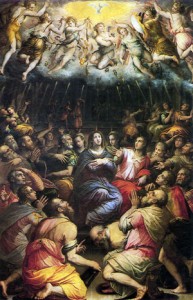 “Venerating the Mother of Jesus in the Church means, then, learning from her how to become a community of prayer“, the Holy Father added. “This is one of the essential aspects of the first description of the Christian community given in the Acts of the Apostles”.
“Venerating the Mother of Jesus in the Church means, then, learning from her how to become a community of prayer“, the Holy Father added. “This is one of the essential aspects of the first description of the Christian community given in the Acts of the Apostles”.
Our prayers “are often dictated by difficult situations, by personal problems which cause us to turn to the Lord in search of light, comfort and aid. But Mary invites us to open prayer to other dimensions, to address God not only in moments of need and not only for ourselves, but unanimously, perseveringly, faithfully and with ‘one heart and soul'”.
Benedict XVI also pointed out that Mary “was placed by the Lord at decisive moments of the history of salvation, and she always responded with complete readiness as a result of her profound bond with God matured through assiduous and intense prayer. … Between the Ascension and Pentecost, she was ‘with’ and ‘in’ the Church, in prayer. Mother of God and Mother of the Church, Mary exercises her maternity until the end of history”.
The Pope concluded by saying that “Mary teaches us the need for prayer and shows us how only through a constant, intimate and complete bond of love with her Son can we courageously leave our homes … to announce the Lord Jesus, Saviour of the world”.
 the examination of the layers of our hearts. In understanding of this is vitally important to appreciate how we make decisions and pray…if we are in our own will or God’s will.
the examination of the layers of our hearts. In understanding of this is vitally important to appreciate how we make decisions and pray…if we are in our own will or God’s will.








 “Venerating the Mother of Jesus in the Church means, then, learning from her how to become a community of prayer“, the Holy Father added. “This is one of the essential aspects of the first description of the Christian community given in the Acts of the Apostles”.
“Venerating the Mother of Jesus in the Church means, then, learning from her how to become a community of prayer“, the Holy Father added. “This is one of the essential aspects of the first description of the Christian community given in the Acts of the Apostles”.
